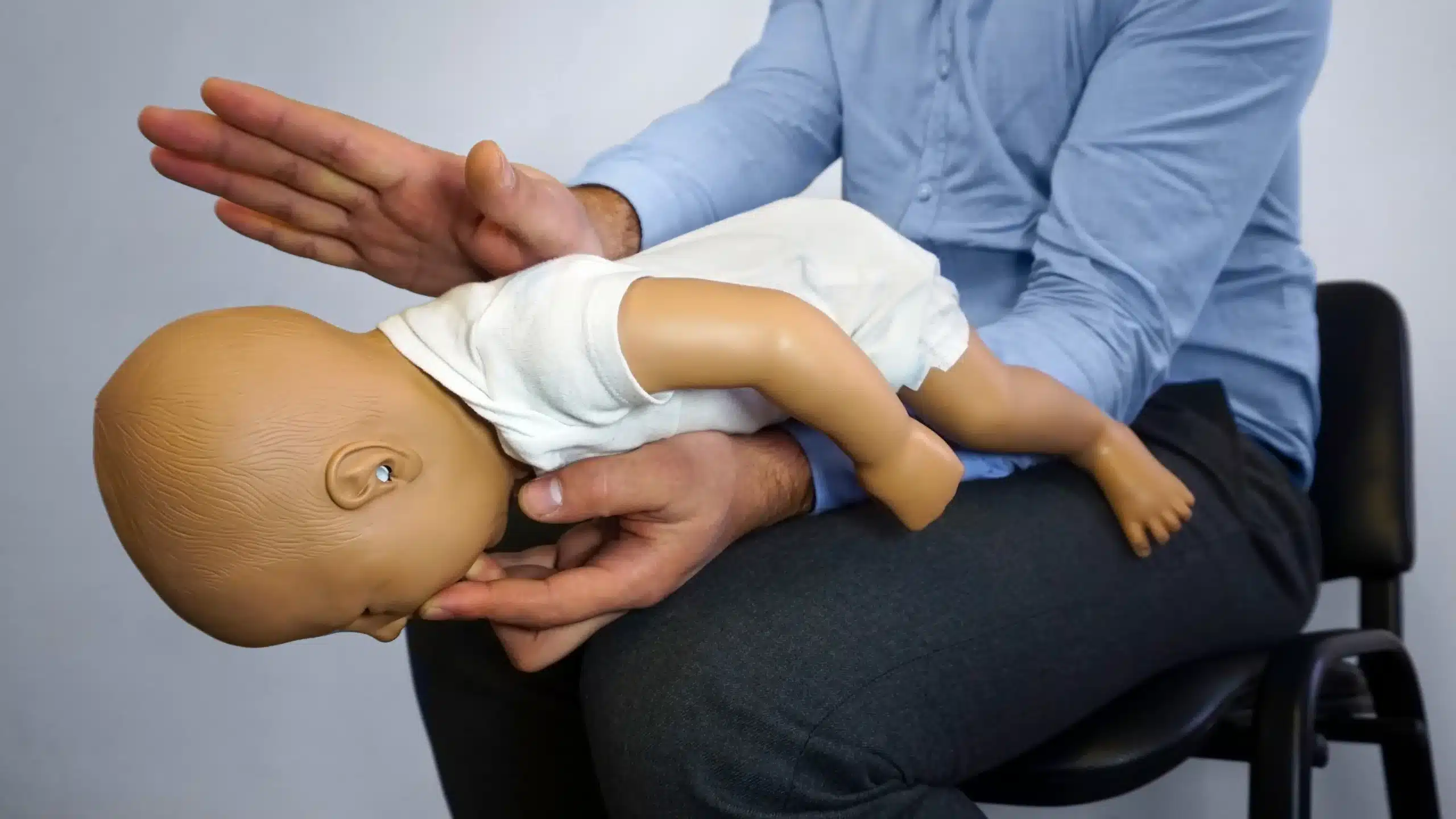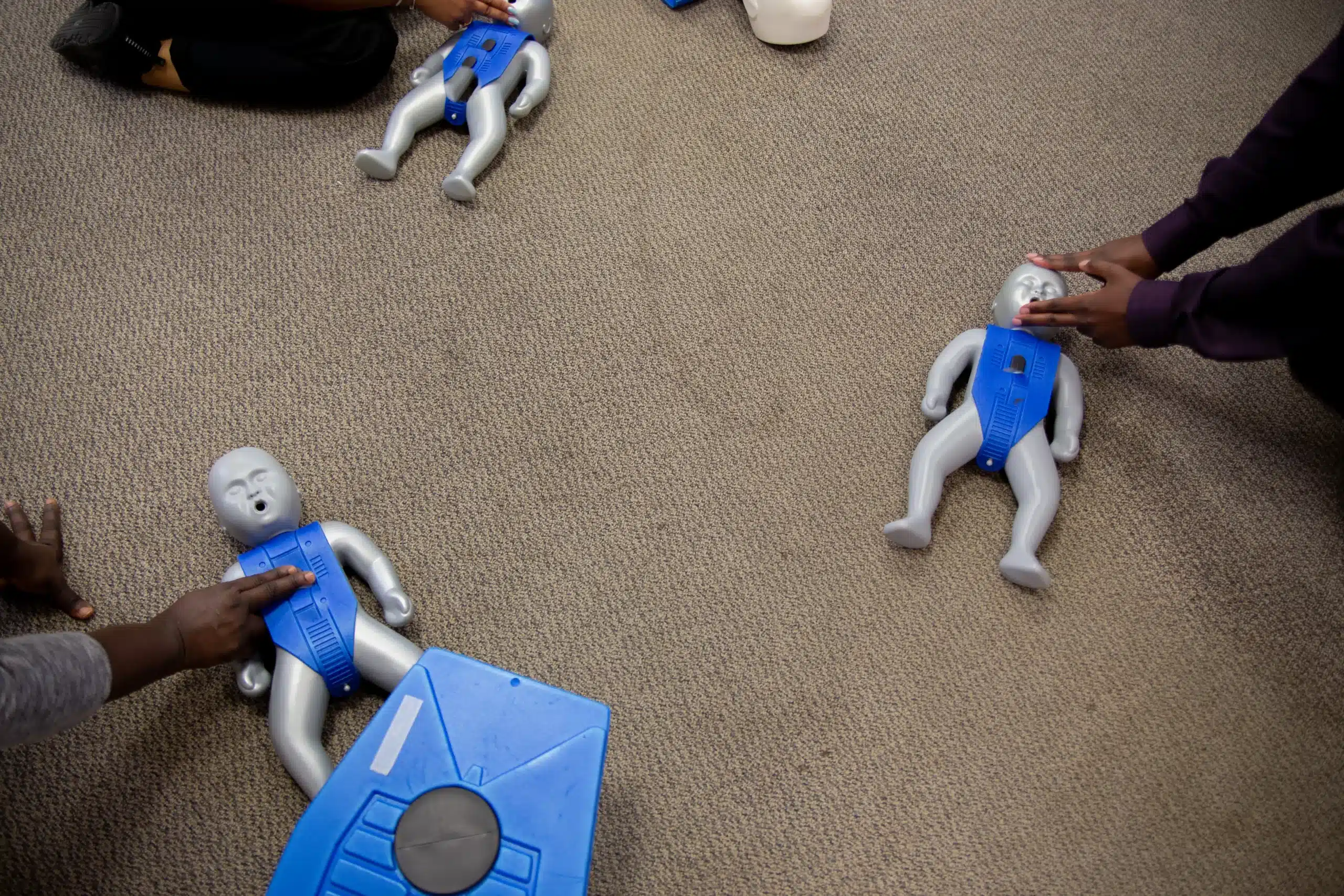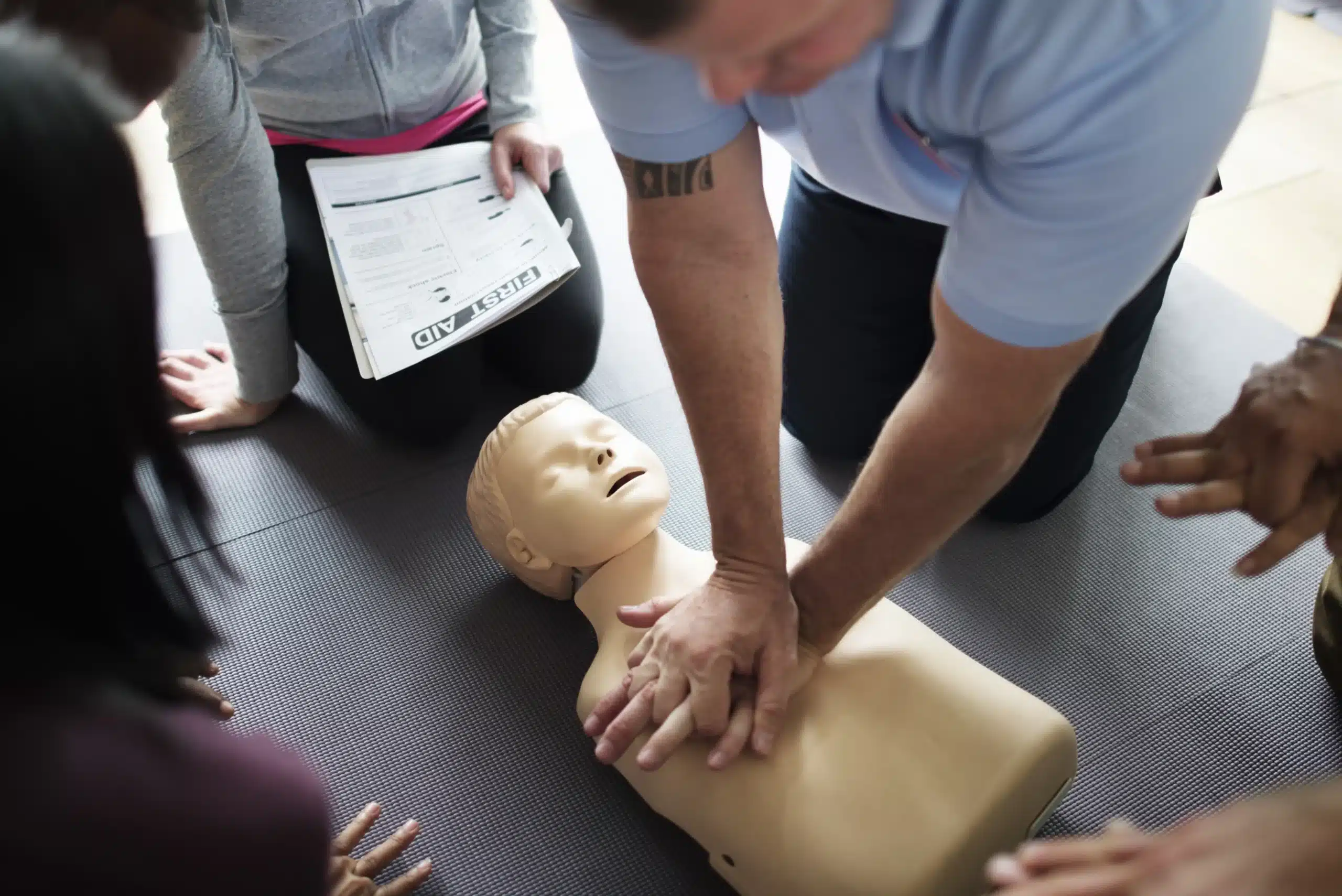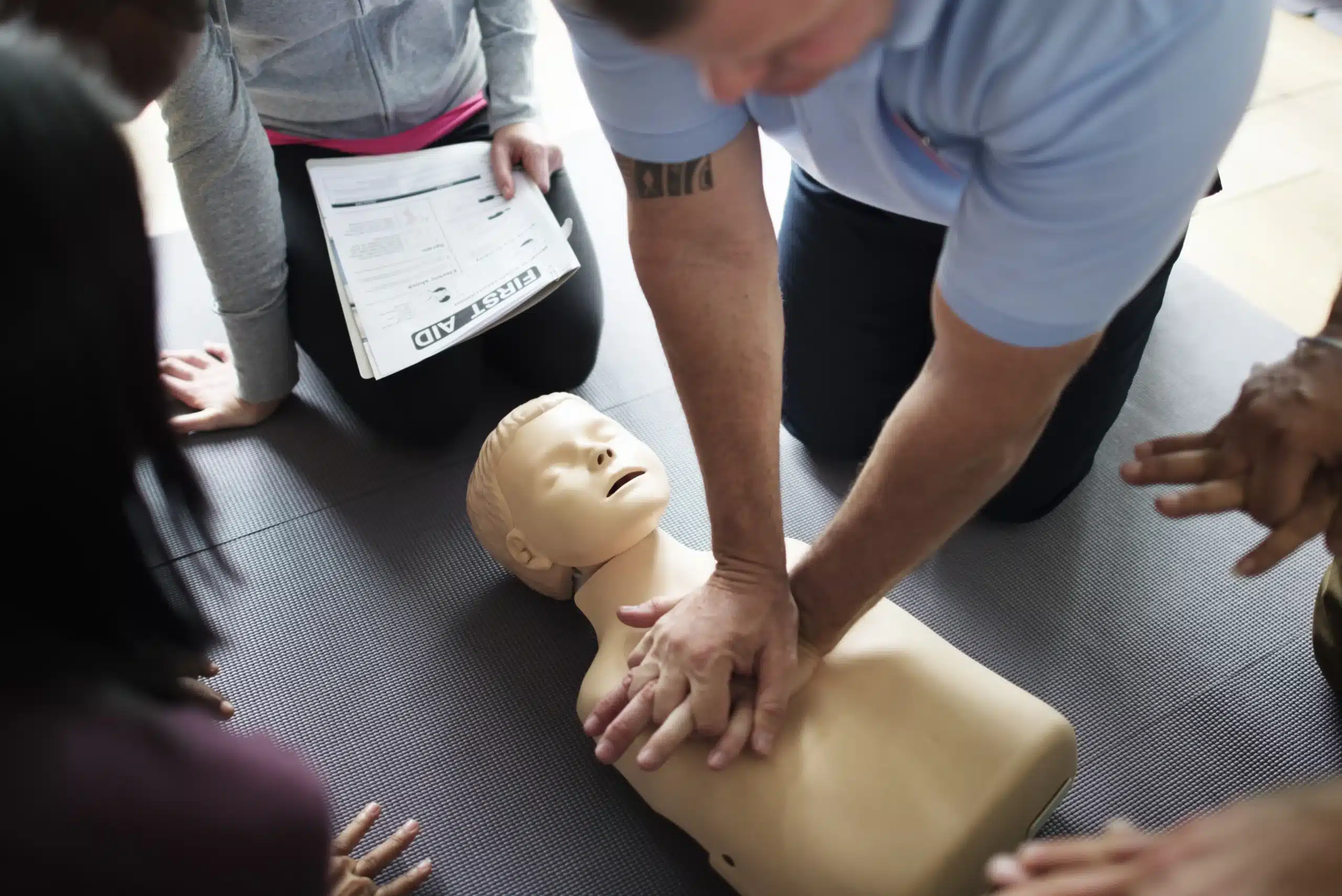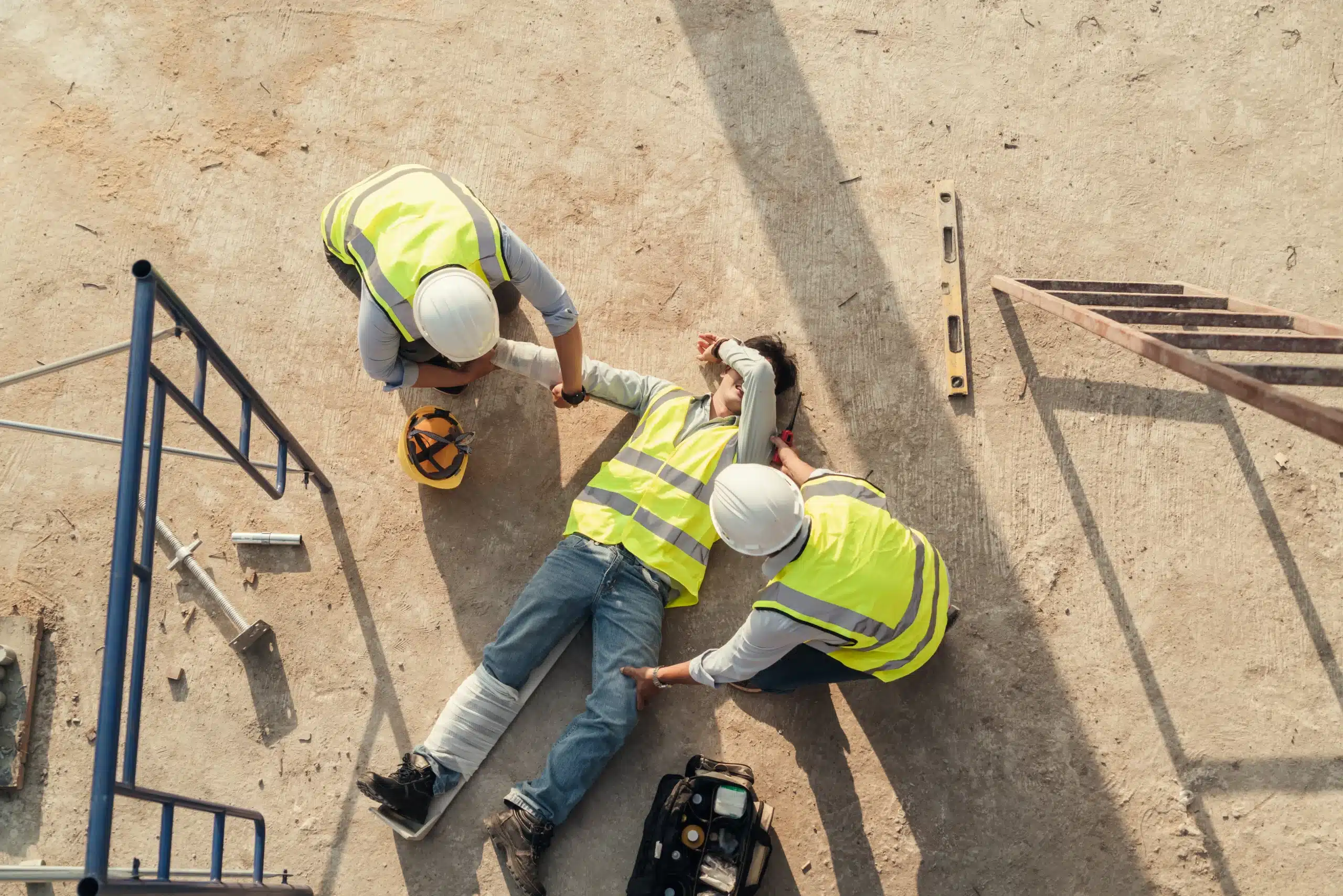Your BLS certification is about to expire, and you’re searching for “BLS renewal near me.” You know how crucial these skills are, but finding the time and the right course can feel overwhelming. Don’t worry, you’re not alone. Many healthcare providers face the same challenge. This guide breaks down the BLS renewal process, offering practical tips and resources to make recertification straightforward and stress-free. We’ll explore different learning options, discuss costs, and help you find a course that fits your schedule and budget. Let’s get your BLS certification renewed with ease.
Key Takeaways
- Stay current with your life-saving skills: Regular BLS renewal ensures you’re prepared to handle emergencies effectively. Find a convenient course format—online, in-person, or hybrid—and confirm it meets the latest AHA guidelines.
- Choose a reputable provider: Look for AHA-certified courses with experienced instructors and transparent pricing. Redwood City CPR Classes offers various options and resources like group discounts and a low-price guarantee.
- Prepare for a smooth renewal: Review your BLS materials, practice essential skills, and understand the renewal process. This preparation will boost your confidence and ensure you’re ready for your recertification.
What is BLS Renewal?
BLS (Basic Life Support) renewal keeps your life-saving skills current. It’s a refresher course on essential techniques like CPR, using an AED, and relieving choking, ensuring you’re up-to-date on the latest guidelines. BLS certification is typically valid for two years, after which you’ll need to renew to maintain your qualifications. Think of it like renewing a driver’s license—it confirms you’re prepared to handle emergencies.
Renewal usually involves a course, either online or in person, and an exam. After successfully completing these requirements, you’ll receive a new certification card, valid for another two years. It’s important to remember there’s no grace period after expiration. If your work requires BLS, renew your BLS certification promptly to avoid gaps in your qualifications. Staying certified means you’re always ready to respond effectively in a crisis. For more information on BLS renewal, explore resources like Heart Start CPR and the American Red Cross.
Find the Best BLS Renewal Providers Near You
Finding the right BLS renewal provider simplifies the recertification process. Here’s a look at some options to consider:
Redwood City CPR Classes
For those in and around Redwood City, dedicated providers like Safety Training Seminars offer convenient courses taught by certified instructors. They provide American Heart Association (AHA) certified BLS renewal courses in Redwood City. Another option, Save A Life CPR, offers several BLS renewal options, including online and in-person courses. Check with each provider for their course schedules and availability. Redwood City CPR classes also offers a low price guarantee.
American Red Cross
The American Red Cross is a well-known provider of health and safety training. While they offer BLS certification, it’s important to note that the Red Cross BLS certification may not be accepted by all healthcare employers. Always confirm with your employer whether Red Cross certification meets their requirements. If you need AHA certification, consider providers like Redwood City CPR Classes, offered by Safety Training Seminars. They focus on AHA-certified courses, ensuring your training aligns with nationally recognized standards.
American Heart Association
The American Heart Association (AHA) offers BLS CPR classes in Redwood City. These courses cater to a diverse audience, from healthcare professionals and first responders to educators, childcare providers, and the general public. AHA courses are known for their comprehensive content and adherence to the latest guidelines. BLS, ACLS, and PALS courses are available.
Local Community Colleges and Healthcare Facilities
Many community colleges and healthcare facilities offer BLS renewal courses. These can be a convenient and cost-effective option, especially for those already affiliated with these institutions. For example, Safety Training Seminars partners with local organizations to provide a range of AHA-certified classes, including BLS, CPR, ACLS, and PALS. They are known for their flexible scheduling and convenient locations. For group discounts, contact Redwood City CPR Classes. Check with your local community college or hospital for their course offerings.
BLS Renewal: Online vs. In-Person
Deciding how to renew your BLS certification—online or in-person—depends on your learning style and schedule. Both options fulfill the requirements and provide you with a valid certification card upon successful completion. Let’s explore the pros and cons of each.
Renew BLS Online
Online BLS renewal offers unparalleled flexibility. You can renew your BLS certification from anywhere with an internet connection, fitting the coursework around your busy schedule. This self-paced approach allows you to review materials as needed and focus on areas where you might need a refresher. Many online courses offer instant feedback and allow you to retake quizzes until you feel confident. This can be a great option for those comfortable with online learning and who prefer to work independently. Both online and in-person options typically offer same-day certification, meaning you’ll receive your new card quickly. For more details on BLS renewal, check out this helpful guide.
Renew BLS In-Person
In-person BLS renewal provides a hands-on learning environment ideal for those who thrive on direct interaction. Led by certified instructors, these courses offer real-time feedback and allow you to practice skills with other healthcare professionals. This face-to-face training can be especially beneficial for mastering techniques like chest compressions and two-rescuer CPR. Providers like Safety Training Seminars offer convenient in-person courses. A high-quality BLS course, like those offered at Redwood City CPR Classes, will cover the latest American Heart Association guidelines, ensuring your training is completely up-to-date.
Hybrid Options
For those seeking a blend of online convenience and in-person practice, hybrid BLS renewal courses are a great alternative. These courses typically involve completing the cognitive portion online, followed by a shorter in-person skills session. This allows you to learn the material at your own pace and then demonstrate your proficiency under the guidance of an instructor. Safety Training Seminars offers a range of American Heart Association (AHA) certified classes, including hybrid options. Redwood City CPR Classes also provides comprehensive BLS certification courses tailored for healthcare providers, including blended learning formats.
BLS Renewal: Cost and Value
Renewing your BLS certification is an investment in your career and the safety of those around you. Understanding the costs involved and what you should expect for your money will help you choose the right course.
Average Price Range and What’s Included
BLS renewal costs can vary, typically falling between $30 and $150. Several factors influence the final price, including your location, the training provider, and the format of the course. For example, some providers offer a comprehensive BLS course for around $120, which includes online coursework, the skills test, and your certification card. Renewal certifications are often less expensive, ranging from $12 to $50. Before registering, make sure you understand exactly what’s included in the quoted price. A clear understanding of the course fees will help you budget effectively.
Discounts, Group Rates, and Promotions
Many training centers offer discounts for group registrations, students, or returning customers. If you’re renewing with colleagues or classmates, ask about group discounts to lower the individual cost. Redwood City CPR Classes, for example, offers group discounts and comprehensive BLS certification courses. Some providers also have periodic promotions, so be on the lookout for special offers. Comparing pricing and exploring different options is always a smart move before committing to a specific course.
Hidden Fees to Watch Out For
While most providers are upfront about their pricing, it’s wise to be aware of potential hidden fees. Some courses might have additional charges for study materials, online access codes, or replacement certification cards. Before registering, clarify what’s included in the course fee and if any extra costs might come up. Many BLS renewal courses include training materials, but double-checking with the provider is always best. Choosing providers with transparent pricing and a low-price guarantee will ensure you’re getting good value for your money. Check here for an example of a low-price guarantee.
How to Renew Your BLS Certification
Eligibility and Prerequisites
Before renewing your BLS certification, make sure you meet the requirements. You’ll need a current BLS provider card from a recognized organization like the American Heart Association (AHA) or the American Red Cross. Some providers, like Redwood City CPR Classes, which offers various AHA courses, may allow a grace period for recently expired certifications. Always check with your chosen training center for their specific policy.
Steps to Renew
Renewing is straightforward. Choose a renewal course (online or in-person), complete the training, and pass the skills assessment and written exam. After that, you’ll receive your updated BLS provider card. For a potentially streamlined experience and a low price guarantee, check out Redwood City CPR Classes.
Maintain Your Skills Between Renewals
Staying current with your skills between renewals is crucial for effective care. Regularly review your course materials and practice core skills, including CPR and AED use. Stay informed about guideline updates through resources like the AHA. Consider joining a group class for extra practice and camaraderie. This preparation will make your renewal smoother and ensure you’re always ready to respond confidently.
Choose a Quality BLS Renewal Course
Finding the right BLS renewal course means doing a little homework to ensure you’re getting top-notch training. Here’s what to look for:
Accreditation and Instructor Qualifications
First, confirm the provider offers AHA-certified courses in CPR, BLS, ACLS, PALS, and First Aid. AHA certification ensures your training meets nationally recognized standards and is widely accepted. Look for courses taught by certified instructors with real-world experience. This ensures you learn from knowledgeable professionals who can answer your questions and offer practical guidance. Safety Training Seminars offers convenient courses taught by certified instructors.
Course Content and Updated Guidelines
A good BLS course will cover the latest American Heart Association guidelines, so you receive up-to-date training. The curriculum should include essential skills like CPR, AED use, and how to respond to various medical emergencies. Check if the course offers hands-on practice and simulations. These practical exercises build confidence and improve your ability to use your skills in real-life situations. Redwood City CPR Classes offers courses covering the latest AHA guidelines.
Student Reviews and Testimonials
Before choosing a course, see what other students say. Online reviews and testimonials offer valuable insights into the quality of instruction, course materials, and overall learning experience. Positive feedback from past participants can give you confidence in your choice. Safety Training Seminars is a woman-owned AHA Training Center providing high-quality American Heart Association BLS, ACLS, PALS, CPR, and First-aid courses in Redwood City, CA. Look for providers with consistently positive reviews, which shows a commitment to student satisfaction. Bay Area CPR lists several providers offering a range of AHA-certified classes. This can be a helpful starting point for your research.
Prepare for Your BLS Renewal
Getting ready for your BLS renewal doesn’t have to be stressful. With the right approach, you can walk into your recertification course feeling confident and prepared. Here’s how to make the most of your renewal prep:
Study Materials and Resources
Proper preparation simplifies the BLS renewal process. Start by reviewing the course materials from your initial BLS certification. This refresher will jog your memory on key concepts and procedures. Many providers, including Redwood City CPR Classes, offer online resources and practice tests. Use these tools to identify any areas where you might need extra focus.
Refresh Your Skills
Hands-on skills are crucial for effective BLS. Before your renewal course, practice essential skills like chest compressions, rescue breaths, and using an AED. You can practice on a CPR manikin if you have access to one, or even visualize the steps to reinforce the procedures. A good BLS course will cover the latest American Heart Association guidelines, ensuring your training is up-to-date. Redwood City CPR classes offers courses that align with these guidelines.
What to Expect During Renewal
Your BLS renewal course will typically involve a review of core BLS principles, followed by a skills assessment. The instructor will guide you through the latest techniques and answer any questions. Providers like Safety Training Seminars offer a range of American Heart Association (AHA)-certified classes, including BLS. With flexible scheduling options, they can accommodate busy professionals and students. Knowing what to expect can ease any pre-course jitters and allow you to focus on mastering the material.
Related Articles
- BLS Renewal in Menlo Park: An Easy Guide
- BLS Classes in Menlo Park: A Complete Guide
- BLS Certification in Palo Alto: A Complete Guide
- BLS HeartCode Redwood City: A Complete Guide
- BLS Classes in Redwood City: Your Complete Guide – Redwood City CPR Classes
Frequently Asked Questions
How often do I need to renew my BLS certification? BLS certification is typically valid for two years. To maintain your credentials, you’ll need to complete a renewal course and pass the required assessments before your current certification expires. Keep track of your expiration date and plan to renew in advance to avoid any lapse in your qualifications.
What’s the difference between online and in-person BLS renewal? Both online and in-person BLS renewal courses cover the same core material and result in a valid certification card upon successful completion. Online renewal offers flexibility, allowing you to learn at your own pace and on your own schedule. In-person courses provide a hands-on learning environment with direct instructor interaction and the opportunity to practice skills with others. Consider your learning preferences and schedule when deciding which format is right for you. Some providers also offer hybrid courses that combine online learning with in-person skills sessions.
How much does BLS renewal cost? The cost of BLS renewal varies depending on the training provider, location, and course format. Expect to pay anywhere from $30 to $150. Often, renewal courses are less expensive than initial certification courses. Be sure to inquire about any potential discounts for groups, students, or returning customers. Also, confirm exactly what’s included in the course fee to avoid unexpected expenses.
What if my BLS certification has already expired? While it’s best to renew before your certification expires, some providers may offer a grace period. Contact your chosen training center to understand their policy on expired certifications. They may allow you to renew even if your card is recently expired. If there’s no grace period, you might need to retake the full BLS certification course rather than a shorter renewal course.
How can I stay up-to-date on BLS skills between renewals? Regularly reviewing your course materials and practicing key skills like CPR and AED use is essential for maintaining proficiency. Visualizing the steps and practicing on a CPR manikin (if available) can help reinforce your training. Stay informed about any updates to BLS guidelines by checking resources like the American Heart Association website. Consider attending refresher workshops or joining a study group to keep your skills sharp and your knowledge current.
